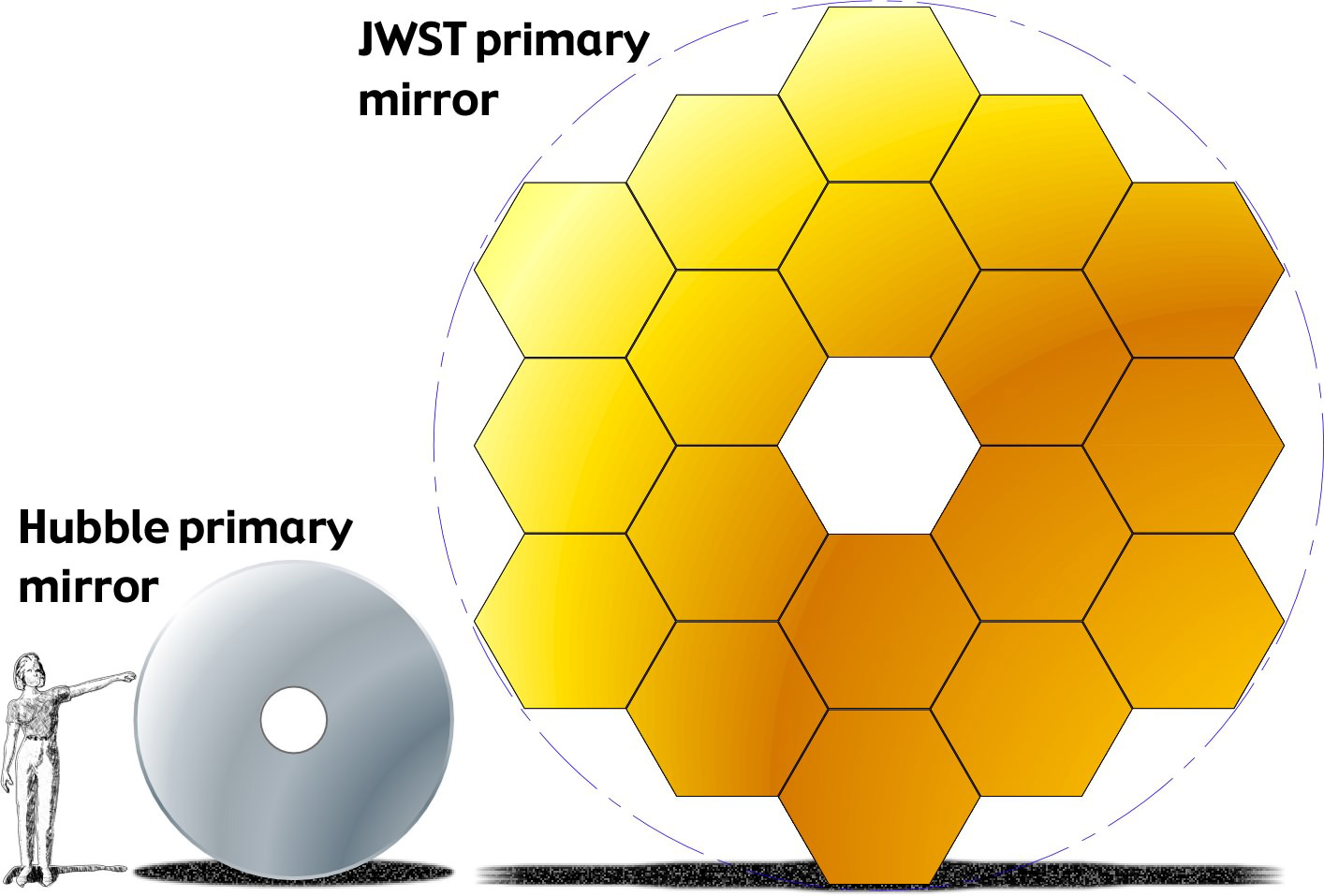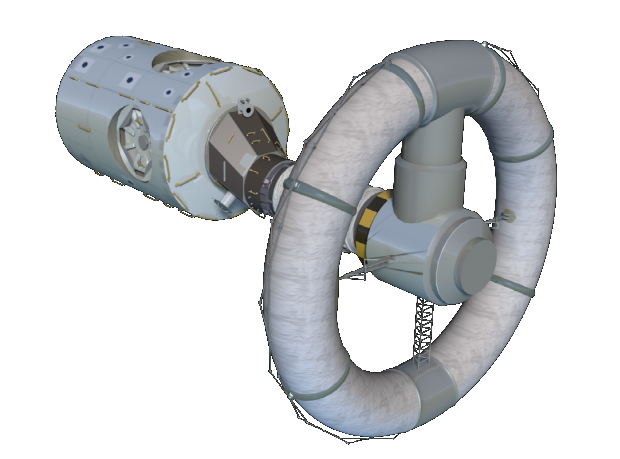Started By
Message
UPDATE: NASA Has Used Google's Machine Learning to Make a Major Alien Planet Discovery
Posted on 12/13/17 at 3:20 pm
Posted on 12/13/17 at 3:20 pm
UPDATE LINK
In a nutshell, artificial intelligence was used to find an eighth planet in the Kepler 90 solar system. This ties our solar system for the most planets ever found in one system.
That might seem droll until we consider that the AI taught itself how to find the new planet using a neural network that works like our brains. This represents another important step in the development of artificial intelligence. The singularity is closer today than it was before this discovery.
The eight planets of Kepler 90 are all within an orbit smaller than that of earth.

**********************************************************************
LINK
It's fascinating to think that AI has been able to see something that humans overlooked.
I'm hoping the news has something to do with KIC 8462852, but it's probably another discovery of an earthlike world. Maybe it's one orbiting Sirius or another nearby star.
The news conference will stream live from NASA's website at 1 p.m. tomorrow.
quote:
Our solar system now is tied for most number of planets around a single star, with the recent discovery of an eighth planet circling Kepler-90, a Sun-like star 2,545 light-years from Earth. The planet was discovered in data from NASA’s Kepler Space Telescope.
quote:
The discovery came about after researchers Christopher Shallue and Andrew Vanderburg trained a computer to learn how to identify exoplanets in the light readings recorded by Kepler – the minuscule change in brightness captured when a planet passed in front of, or transited, a star. Inspired by the way neurons connect in the human brain, this artificial “neural network” sifted through Kepler data and found weak transit signals from a previously-missed eighth planet orbiting Kepler-90, in the constellation Draco.
While machine learning has previously been used in searches of the Kepler database, this research demonstrates that neural networks are a promising tool in finding some of the weakest signals of distant worlds.
In a nutshell, artificial intelligence was used to find an eighth planet in the Kepler 90 solar system. This ties our solar system for the most planets ever found in one system.
That might seem droll until we consider that the AI taught itself how to find the new planet using a neural network that works like our brains. This represents another important step in the development of artificial intelligence. The singularity is closer today than it was before this discovery.
The eight planets of Kepler 90 are all within an orbit smaller than that of earth.

**********************************************************************
LINK
quote:
NASA has announced plans to livestream a major media briefing on Thursday, December 14. The agency says the event will focus on the latest Kepler discovery, which was facilitated by machine learning techniques from Google.
quote:
We don’t know what this latest Kepler discovery will be about, but the last time NASA announced a major news conference like the one scheduled for December 14, TRAPPIST-1 was the focus, so it’s reasonable to assume this week’s announcement will be something suitably exciting.
It's fascinating to think that AI has been able to see something that humans overlooked.
I'm hoping the news has something to do with KIC 8462852, but it's probably another discovery of an earthlike world. Maybe it's one orbiting Sirius or another nearby star.
The news conference will stream live from NASA's website at 1 p.m. tomorrow.
This post was edited on 12/14/17 at 5:27 pm
Posted on 12/13/17 at 4:49 pm to Kentucker
Will there be pics of the aliens?
Posted on 12/13/17 at 5:06 pm to Ancient Astronaut
Have to wait til next October for alien pics. James Webb Space Telescope will be launched then. Be patient.
Posted on 12/13/17 at 5:15 pm to Kentucker
quote:
Have to wait til next October for alien pics. James Webb Space Telescope will be launched then. Be patient.
Living in a relative golden age of space exploration. That telescope is easily one of the most exciting things I've ever read about.

This post was edited on 12/13/17 at 5:19 pm
Posted on 12/13/17 at 6:07 pm to rootisback
quote:
are the alien women hot?
Yes, but they are green. I can live with that though.
This really is a golden age of space exploration. Aliens or not we making tremendous discoveries almost every day it seems like.
Posted on 12/13/17 at 6:47 pm to Arksulli
quote:
Yes, but they are green. I can live with that though.
But do they believe Jesus died for their sins? That's the important thing.
Posted on 12/13/17 at 6:55 pm to Globetrotter747
quote:
But do they believe Jesus died for their sins? That's the important thing.
Will they allow me to lay on hands is the important thing.
Though, that does raise an interesting question. What, if any, religious/spiritual beliefs would an alien culture have?
Are they monotheistic in the Judaism/Christian/Muslim sense? Polytheistic? Spiritual? Completely and rigidly secular?
Posted on 12/13/17 at 6:59 pm to StrawsDrawnAtRandom
Yes, it is a golden age for exploring space. We seem to have finally realized how big the Universe is and the futility of colonizing other worlds. Instead, we're devoting more and more of our efforts to robotic exploration.
JWST and other robot telescopes coming online, that's the WFIRST telescope below, will give us incredible knowledge about dark matter, the structure of the Universe and, especially, the likelihood of life on exoplanets.
Wide Field Infrared Survey Telescope (WFIRST) will be launched in the 2020s.

JWST and other robot telescopes coming online, that's the WFIRST telescope below, will give us incredible knowledge about dark matter, the structure of the Universe and, especially, the likelihood of life on exoplanets.
Wide Field Infrared Survey Telescope (WFIRST) will be launched in the 2020s.

Posted on 12/13/17 at 7:08 pm to Arksulli
quote:
Aliens or not we making tremendous discoveries almost every day it seems like.
Knowledge about the Universe is expanding at an exponential rate. This despite a mere $20 billion budget for NASA.
Our military budget is $600 billion, more than the next 10 countries combined. Imagine if we devoted that much to our space program. The possibilities are stunning.
Posted on 12/13/17 at 7:35 pm to Kentucker
quote:
military budget is $600 billion
With a budget like that, seems like the military should be on Mars by now.
Posted on 12/13/17 at 7:39 pm to Kentucker
quote:
futility of colonizing other worlds
Tell me more about this. I'm not up-to-date on where we're at on that front. It's now seen as a waste of time?
Posted on 12/13/17 at 9:29 pm to KSGamecock
quote:
It's now seen as a waste of time?
Well, no, not entirely. At least not at this time. Manned missions into space are incredibly expensive because astronauts must take so much of their environment with them. This is the primary reason no one has returned to the moon and there are no plans by any nation to go back.
Of course, manned missions command much more interest amongst the general public than do robotic missions. It's romantic to think of humans migrating to other worlds but the fact is that it's just not feasible. We evolved here. We can't adapt to another world.
Most astrobiologists acknowledge this, if only in whispers. No one wants to champion robot missions over manned exploration because interest in space exploration would decline precipitously.
That's why NASA is enthusiastically backing President Trump's call for a Mars mission by 2030. It will mean much more money for NASA and, of course, phenomenol technology will be generated as a result.
However, NASA execs are crossing their fingers behind their backs while smiling to the public. They know that the dangers to the astronauts will be incredible and that the likelihood of success is minimal.
However, they know it's worth the risk for two reasons. First, even a successful mission will delineate the dangers of space travel that we, in our human forms, can never overcome. This will make it easier to convince the public that space exploration must be done with AI robots.
Secondly, and I've already mentioned this, a successful mission will cause a funding bounce that will likely be permanent. The technology coming out of such a mission will be worth the cost alone. But the interest in NASA and space will be incredibly enhanced, too.
This post was edited on 12/13/17 at 10:09 pm
Posted on 12/13/17 at 9:38 pm to Kentucker
The difficult part would be successfully landing a living human on the planet and then getting them off of the planet and back to Earth alive. Can we do that? Launching off of the Moon, where there's less gravity, was one thing but Mars should be much more difficult.
Would you be willing to go to Mars if it meant you would die there?
I would. You'd be the first human to die on another planet. Remembered forever!
Posted on 12/13/17 at 9:43 pm to Kentucker
Just wanted to say how much I appreciate your threads and posts.
Posted on 12/13/17 at 10:53 pm to KSGamecock
quote:
But the technology already exists, we'd just have to put some financial muscle behind it.
The technology exists but it's nominal at best. The several moon missions lasted only for a few days each and did not tax the physical endurance of the astronauts the way a Mars journey of many months each way will.
The absence of 1g gravity for the very long period (2 years is a good estimate) involved with a round trip mission to Mars will most likely cause permanent damage to the bodies and minds of astronauts. Adding in the dangers of cosmic radiation, spaceship malfunctions and the potential of unanticipated problems makes a mission seem foolhardy to a reasonable person.
However, being humans and having conquered every challenge we've faced here on earth, we seem destined to at least venture out as far as we can. I favor the attempt, while at the same time being regrettably confident that we will hit a wall past which we will not be able to proceed in our biological forms.
quote:
The difficult part would be successfully landing a living human on the planet and then getting them off of the planet and back to Earth alive. Can we do that? Launching off of the Moon, where there's less gravity, was one thing but Mars should be much more difficult.
Well, Martian gravity is 38% as strong as earth gravity and the moon's gravity is about 17% that of earth's. A 200 pound man would weigh 76 pounds on Mars and about 34 pounds on the moon.
So, the difference in gravity between Mars and the moon is much less than between earth and Mars. Relatively speaking, a launch from Mars should be only about twice as difficult as from the moon.
As I see it, the most difficult part of a Mars mission would be traversing the distance between the planets. We have lots of experience launching and landing but not moving a spaceship across many millions of miles.
Few people know that most missions to Mars have failed because of the inability to "hit the target." This includes the attempts of all nations, not just the U.S. It is extremely difficult and represents perhaps the greatest danger to a manned mission.
quote:
Would you be willing to go to Mars if it meant you would die there?
No. I'd much rather synthesize the information coming from robotic missions of long duration. We need to know our human limitations in space and we're a species that must do it to learn it, but I'll be happy to watch from here on earth.
quote:
I would. You'd be the first human to die on another planet. Remembered forever!
I think you overestimate the glory of being a martyr, but to each his own.
This post was edited on 12/13/17 at 11:03 pm
Posted on 12/13/17 at 11:02 pm to SafetySam
quote:
Just wanted to say how much I appreciate your threads and posts.
Thank you. I'm a science nerd with a passion to see the big picture. The disciplines of science all involve reductionism and one can become focused on just one but, to me, the joy of scientific knowledge is when all the parts are complementary and an understanding of nature comes about.
Please feel free to offer your own feelings, philosophies, knowledge and criticisms. The OT seems to be a very tolerant forum where ideas are welcomed and nourished.
Posted on 12/14/17 at 8:52 am to Kentucker
quote:
The absence of 1g gravity for the very long period (2 years is a good estimate) involved with a round trip mission to Mars will most likely cause permanent damage to the bodies and minds of astronauts. Adding in the dangers of cosmic radiation, spaceship malfunctions and the potential of unanticipated problems makes a mission seem foolhardy to a reasonable person.
NASA was working on that problem just recently, though the project did not get the green light. The Nautilus-X would have been a space craft designed for lengthy space missions (up to 2 years) with a rotating habitable centrifuge to provide partial gravity to offset the dangers of prolonged micro gravity to astronauts.
Obviously you wouldn't be able to hit 1g unless you had a large enough ring to be impractical or you cranked up the RPMs enough to possibly induce vertigo in your astronauts. But it would be possible to reach .3 or even .5 gs without excessive RPMs.
They also had an addition to reduce the danger of cosmic radiation with large water and hydrogen "slush" tanks to lessen the amount of radiation reaching the living quarters.
It was designed with off the shelf technology and would have been fairly cheap as far as space vessels go, though obviously the price tag would have increased by a great deal once they started trying to build it.
The death blow to the project is that it would have required multiple lifts to get the materials in space where it would be assembled at the ISS.
Still, it is an interesting concept and I hope that NASA is doing more studies on the possibilities of a centrifuge space ship.
EDIT: And it occurred to my stupid self I should put up a link or two.
LINK
LINK
This post was edited on 12/14/17 at 8:54 am
Posted on 12/14/17 at 4:50 pm to Arksulli
quote:
NASA was working on that problem just recently, though the project did not get the green light. The Nautilus-X would have been a space craft designed for lengthy space missions (up to 2 years) with a rotating habitable centrifuge to provide partial gravity to offset the dangers of prolonged micro gravity to astronauts.
The idea that a centrifuge can generate "artificial gravity" in space has always bothered me. I contend that a centrifuge can only work properly when operating under the influence of gravity. A simple thought experiment illustrates my point.
Imagine an astronaut in space is floating in a circular tube-wheel with a diameter of one-quarter mile. The tube itself is 100 feet across. Both the tube and the astronaut are weightless in space, of course. This is the type of centrifuge proposed in the Nautilus-X ISS.

Now begin to spin the tube-wheel on its axis. What laws of physics will cause the astronaut to orient towards the outer surface of the tube? There are none. The rate of spin could be increased to a fair percentage of the speed of light and the astronaut would remain floating in the middle.
Now stop the tube and place a solid wall across the diameter inside the tube. If we spin the tube now, the wall will come around and make contact with the astronaut. Is this artificial gravity? No, the formerly stationary astronaut will now move at the same rate as the wall and will float beside it. He won't be moving relative to the wall because he is moving at the same speed as it is.
Einstein's Theory of General Relativity states that there is only one way that gravity can be mimicked, constant acceleration. Astronauts experience this when they launch into space, but immediately begin to float freely when the spacecraft reaches its orbital speed.
It's unfortunate that the Nautilus-X ISS demonstration was scrapped with the project because it would have revealed the impossibility of artificial gravity using the centrifuge idea. To me, it's one of the most persistent fallacies associated with space travel.
Posted on 12/14/17 at 7:07 pm to Kentucker
quote:
James Webb Space Telescope will be launched then.
I cannot wait to see the images JWST transmits.
To think how much further back in time JWST will be able to see than the HST Deep-field view!
It will be interesting to see how well the radial velocity and transit methods of finding exo-planets holds up when we can actually resolve exo-planets.
Need to get that AI working on faster methods of interstellar space travel. How totally mind blowing would it be to locate and explore an Earth-type alien world.
Popular
Back to top

 3
3






